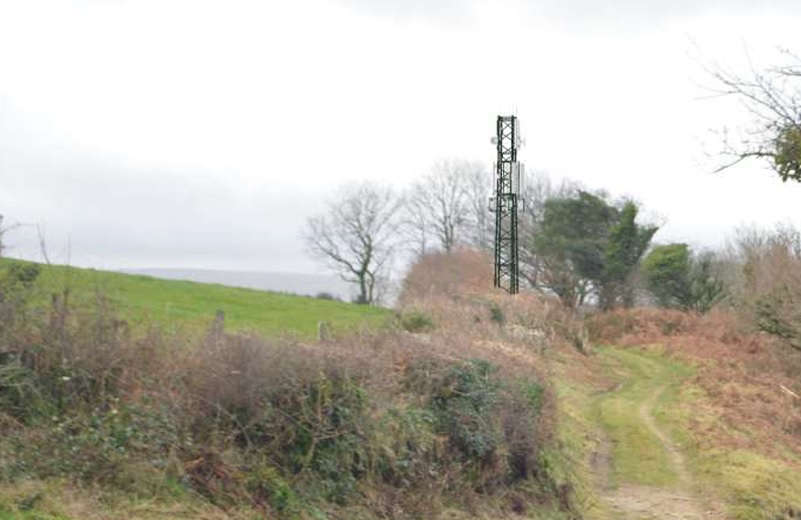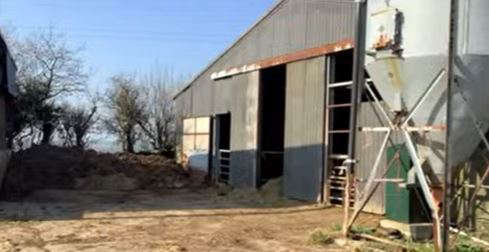
But 80% of Devon's roads not covered
Devon County Council has deployed its full fleet of gritters as an amber warning of heavy snow comes into place – but 80 per cent of the county’s roads won’t be treated. All routes above 200metres in the county were gritted, while the council has announced that all other routes will be gritted after 3pm.
The snow response plans for Haldon/Telegraph Hill and the North Devon Link Road were activated at midday on Thursday.
Not everywhere in Devon is expected to be hit with snow overnight on Thursday and the Met Office has issued an amber warning, during which areas of high ground could see up to 10 cm of snow over a five-hour period. On Friday, there's a yellow alert for snow and ice, which lasts until 9pm.
Explaining why not every road will be gritted, a council spokesman said: “Devon County Council maintains nearly 13,000 km or 8,000 miles of roads in the county. During a winter emergency situation it is not practicable or cost effective for the whole network to be pre-treated or cleared immediately.”
On the choice of roads that are gritted, they added: “The primary salting network is made up of the major routes where the majority of vehicle movements take place and also includes accesses to hospitals, ambulance stations, fire stations and other emergency service establishments, railway stations, airports and secondary schools. The length of road forming the primary salting network of 37 routes is 20 per cent of the road network.”
The County Council have also provided a map of where gritting bins are in case your road is not being gritted – it can be found at https://new.devon.gov.uk/roadsandtransport/report-a-problem/map/map_src/gritbins/
Details of gritting routes in Devon can be found at devon.roadworks.org (Map Layers>Driver Information>Winter Gritting Routes)The following criteria are used to determine which roads are salted as part of the primary salting network:
Strategic routes
All A and B roads and C roads classified as high-speed routes.
Traffic flow
Routes with February two-way flows greater than 1000 vehicles per day.
Settlement population
Main access route to settlements with a population of 500 or greater as provided by Devon County Council’s Strategic Intelligence unit.
Emergency premises
Main access route to 24hr emergency services premises, defined as “Emergency premises with 24-hour access” include: ambulance stations, full-time and retained fire stations, hospitals with 24-hour casualty departments and police stations manned 24 hours.
Cottage and community hospitals
Main highway access route to strategic cottage and community hospitals as notified to the authority by Devon Primary Care Trust.
Secondary schools (including independent secondary schools)
Main highway access to secondary schools.
Bus routes
Bus routes with a service interval of at least 15 minutes within any one hour of the day, in one direction of travel or where a combination of multiple bus services meet this criteria.
Airports
Main highway access to regional airports.
Railway stations
Main highway access to mainline and branch line railway stations.
Adjoining highway authority salting networks
Agreement to ensure consistency of action across boundaries.
Park and Ride sites
The bus loop of Park and Ride sites.
The following criteria are used to determine which roads are salted as part of the secondary salting network, but are not gritted until the main route is clear:
Settlement population
Main access route to settlements with a population of 100 to 499.
Park and Ride sites
Car parking area.
Bus routes
Where problems have been identified on routes with a service interval of at least 30 minutes within any one hour of the day, in one direction of travel, or where a combination of multiple bus services meet this criteria.
Devon County Council is reminding people of the following advice:
• Avoid overnight travel unless absolutely essential as roads will always be more hazardous at night with less traffic and colder temperatures;
• Never assume a road has been salted. Remember that showers or rain will wash salt off roads leaving them prone to ice, and in extreme cold even salting will not stop ice from forming;
• Allow additional time for your journey and reduce your speed;
• Drive with care and according to the conditions;
• If you have vulnerable or elderly neighbours, think about how they could possibly be helped through the cold spell;
• Try to maintain indoor temperatures to at least 18C, particularly if you are not mobile, have long-term illness or are 65 or over. The NHS website has more information on staying healthy during cold weather;
• Listen to local radio for updates on current weather conditions and ensure you have food and essential medications;
• Check out any school closures and sign up for alerts for any school by clicking on ‘Alert Me’.
 Rare curlews and martens are leaving Dartmoor - for now
Rare curlews and martens are leaving Dartmoor - for now
 Dartmoor phone mast gets the go-ahead
Dartmoor phone mast gets the go-ahead
 Livestock processing plant refused at Shebbear
Livestock processing plant refused at Shebbear
 Devoncast - New lives for two Devon landmarks and the mysteries of AI
Devoncast - New lives for two Devon landmarks and the mysteries of AI
 Two Devon warships could be sold to Brazil
Two Devon warships could be sold to Brazil
 Devon police dog honoured
Devon police dog honoured
